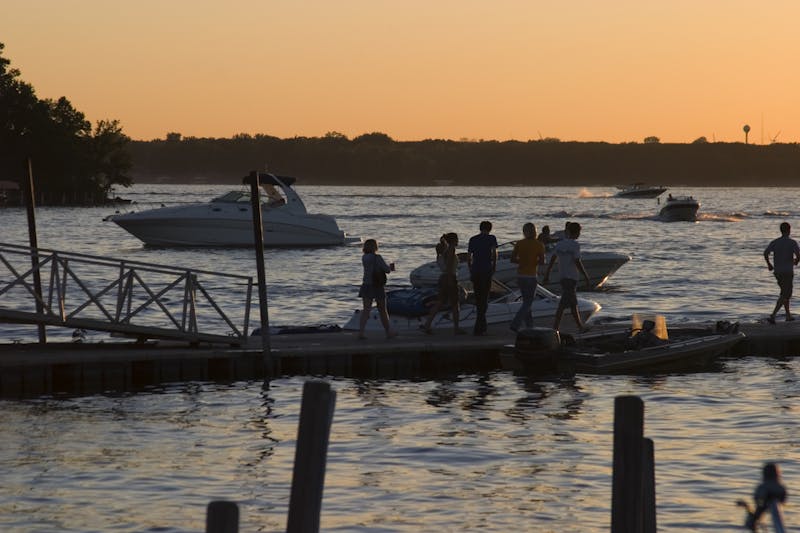
A sweeping new law set to take effect on July 1, 2025, marks a major shift in how law enforcement interacts with Florida boaters. Known as the “Boater Freedom Act,” the law prohibits law enforcement officers from stopping or boarding vessels without probable cause or a suspected violation.
This legislative change, signed by Governor Ron DeSantis, aims to reduce what many Floridians and tourists alike have described as unnecessary and intrusive stops by law enforcement officers.
At Carlson Meissner Hayslett, where our criminal and boating law attorneys handle cases across the Tampa Bay area, we’re closely monitoring the legal implications of this important reform.
What Is the “Boater Freedom Act”?
The Boater Freedom Act is designed to align maritime enforcement procedures more closely with constitutional protections that exist on land.
Under the new law:
- FWC officers and other law enforcement agencies may no longer stop or board a vessel without probable cause or reasonable suspicionthat a law or regulation has been violated.
- Random safety inspections, property searches, and compliance checks will no longer be permitted unless a legal basis exists.
This puts an end to the routine practice of random vessel boardings under the guise of safety checks, practices that have, in some cases, escalated into more invasive searches and even arrests.
Why This Matters: Constitutional Parallels on Land and Water
Governor DeSantis compared the maritime experience to that of everyday pedestrians:
“If you are walking down the street, you cannot be stopped and searched without probable cause. So, it should be the same on the water.”
This shift brings maritime law enforcement in closer alignment with the Fourth Amendment, which protects individuals from unreasonable searches and seizures.
Until now, boaters in Florida could have their vessels boarded and inspected with no suspicion of wrongdoing, a practice many legal experts viewed as an erosion of constitutional rights once a citizen left the shoreline.
Impact on Boaters and Law Enforcement
With over 900,000 registered vessels in Florida as of 2023, the Sunshine State consistently ranks #1 in recreational boating. The new law is intended to preserve Florida’s reputation as the “Boating Capital of the World” while addressing growing concerns from residents, tourists, and boating advocates about their rights on the waterways.
For boaters, the law promises:
- Fewer disruptions while on the water;
- Greater privacy and personal security;
- Reduced friction with enforcement officers.
For law enforcement, it represents a call to focus on evidence-based enforcement rather than blanket policing tactics and fishing expeditions.
Concerns and Legal Considerations
While boating freedoms expand, it’s important to recognize that the FWC and local marine units still retain full authority to stop a vessel when legitimate cause exists—including:
- Boating under the influence (BUI)
- Reckless operation
- Lack of required safety equipment
- Environmental violations
If you are stopped, remember:
- Stay calm and respectful;
- You have a right to ask why you are being stopped;
- Do not consent to any searches unless legally required;
- Contact an experienced maritime or criminal defense attorney if your rights are violated.
Gas-Powered Boat Protection
Another lesser-known but impactful provision of the Boater Freedom Act prevents local municipalities from banning or restricting the use or sale of gas-powered vessels. This ensures:
- Statewide consistency in boating regulations;
- Protection of small businesses tied to fuel-based marine operations;
- Continued access to popular gas-powered vessel types.
Protection of Florida’s Natural Resources
The law also aims to prevent significant harm to Florida's unique and vulnerable spring ecosystems, which are important for water quality, wildlife habitat, as well as recreation and tourism.
The law now authorizes the Florida Fish and Wildlife Conservation Commission to modify how vessels may anchor, moor, beach, or ground within springs protection zones.
Fishing License Restrictions for Foreign Entities
The bill expands current restrictions by prohibiting fishing licenses for commercial vessels owned by any foreign power. This reflects broader concerns about foreign ownership of U.S.-based commercial fishing operations, national security and resource protection in the commercial fishing industry.
Legal Takeaway from Our Criminal Defense Team
As this law takes effect, there may be a period of adjustment for both law enforcement and the boating public. At Carlson Meissner Hayslett, our criminal defense attorneys are prepared to assist boaters facing unlawful stops, searches, or arrests that may now violate the updated legal standards.
If you’ve been stopped on the water without cause, contact our office immediately. We offer free consultations and represent clients throughout the area
A Win for Civil Liberties and Florida Boaters
The Boater Freedom Act is a landmark shift in Florida maritime law, one that restores constitutional protections and rebalances the relationship between boaters and law enforcement. As we move into a busy summer boating season, it’s more important than ever to know your rights, stay safe, and understand what law enforcement can—and cannot—do on Florida waters.

